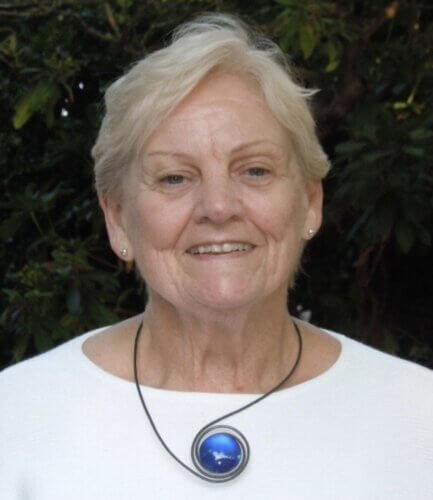 Nadine Zemon can be described as a natural explorer, someone who has sought out new insights and experiences throughout her life. She now brings that relentless curiosity to PCORnet in her role as the newest patient representative on the PCORnet Steering Committee. Never one to be boxed into a single interest area, Nadine spent her younger years exploring dual passions: art and medicine. She has worked as a pediatric emergency room nurse, managed an employee health unit and, with an interest in integrative medicine, practiced massage therapy that incorporated guided imagery techniques of psychosynthesis. Her longtime interest in art led to an appreciation for the value of the arts in medicine and to becoming a graphic designer later in life. Now, Nadine is using her voice on the Committee to infuse the patient perspective into PCORnet-enabled work. Here’s her perspective on this role and why it matters:
Nadine Zemon can be described as a natural explorer, someone who has sought out new insights and experiences throughout her life. She now brings that relentless curiosity to PCORnet in her role as the newest patient representative on the PCORnet Steering Committee. Never one to be boxed into a single interest area, Nadine spent her younger years exploring dual passions: art and medicine. She has worked as a pediatric emergency room nurse, managed an employee health unit and, with an interest in integrative medicine, practiced massage therapy that incorporated guided imagery techniques of psychosynthesis. Her longtime interest in art led to an appreciation for the value of the arts in medicine and to becoming a graphic designer later in life. Now, Nadine is using her voice on the Committee to infuse the patient perspective into PCORnet-enabled work. Here’s her perspective on this role and why it matters:
What sparked your interest in clinical research?
My mother died of rheumatic heart disease when I was a teenager, which was made all the more tragic because of the fact that she suffered greatly due to a lack of available treatments. As time went on and cardiac care evolved, I marveled at how much more we know now versus then. It made a strong imprint on me about the power of clinical research. My mother’s quality of life could have been completely different if she had experienced her disease today as opposed to 50 years ago. How much more can we help patients 50 years from today?
How did you get involved in clinical research?
I heard about patient-centered research from a friend who was forming the first Citizen Scientists group at the University of Florida. I learned the program was recruiting patients to be involved with the Translational Science program, and I decided to sign up. At the time, the concept of patients having a seat at the research table was so novel, and yet it also made so much sense. I was excited to take part.
What excites you about PCORnet?
The whole idea of patient-centered research excites me. This notion that we should have symbiotic relationships between patients, providers, and researchers feels like it could be a pathway to a whole new era of therapeutic development—one that transforms the “old school” way of conducting research in the best way possible.
How has your role changed as a patient representative in clinical research?
When I first started participating in research, I often doubted my instincts. For example, I might think I was the only one who didn’t understand something, so I wouldn’t speak up. Over time, I’ve learned that if I don’t understand it, most other patients probably won’t either. My voice has become much stronger, and as part of the PCORnet Steering Committee, the patient representatives have actually formalized the process of identifying confusing topics and presenting them to the other Committee members. After each weekly Steering Committee meeting, the patient representatives meet to list areas where we—and the patient community at large—will need more clarity. The Committee is always receptive to this feedback. It is a big part of the value we bring and why we are here!
How do you see the PCORnet Steering Committee evolving in the coming years?
Now that we patient representatives have found our footing on the Steering Committee, we want to find better ways to communicate with other current or prospective patient reps. We are launching a pilot project to connect with patient partners at Clinical Research Networks to open the communication channels. We want to know their thoughts on PCORnet and the Steering Committee, and we also want to share ways they can get involved in research. Our hope is that by starting these conversations, we can engage with new ideas and maybe even inspire the influential patient representatives of the future.
What would you like other patients looking to engage in research to know?
We need your voice in research, and there are so many ways to get involved. Also, you don’t have to have a medical degree to be an effective patient representative; you just have to be willing to share you perspective toward the betterment of research.
